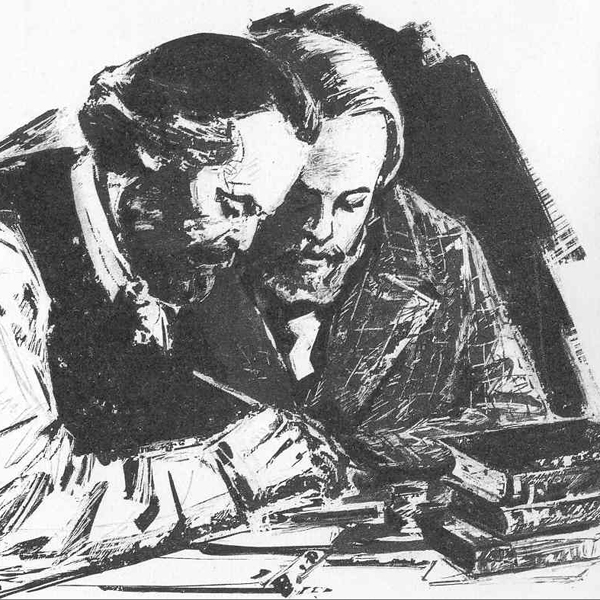A panel discussion held at Left Forum 2013, at Pace University, on June 9, 2013.
This panel was transcripted in Platypus Review #61 (Click on banner below to see):
Description:
Bourgeois society came into full recognition with Rousseau, who in the Discourse on the Origin of Inequality and On the Social Contract, opened its radical critique. Hegel wrote: "The principle of freedom dawned on the world in Rousseau." Marx quoted Rousseau favorably that "Whoever dares undertake to establish a people’s institutions must feel himself capable of changing, as it were, human nature... to take from man his own powers, and give him in exchange alien powers which he cannot employ without the help of other men." Rousseau posed the question of society, which Adorno wrote is a "concept of the Third Estate." Marx recognized the crisis of bourgeois society in the Industrial Revolution and workers' call for socialism. But proletarian socialism is no longer the rising force it was in Marx's time. So what remains of thinking the unrealized radicalism of bourgeois society without Marx? Kant stated that if the potential of bourgeois society was not fully achieved as the “mid-point” of freedom then Rousseau may have been right to prefer savagery against civilization’s “glittering misery.” Nietzsche warned that we might continue to be "living at the expense of the future:" "Perhaps more comfortably, less dangerously, but at the same time in a meaner style, more basely." How have thinkers of the revolutionary epoch after Rousseau, Adam Smith, Kant, Hegel, Benjamin Constant, and Nietzsche himself, contributed to the possibility of emancipation in a world after Marxism?
Speakers:
Chris Cutrone
Spencer Leonard
Sunit Singh
Platypus Marxist reading group
June 28 - August 16
Sundays 1-4PM at:
School of the Art Institute of Chicago
112 S. Michigan Ave.
room 707
Radical bourgeois philosophy: Kant-Hegel-Nietzsche
We will address the greater context for Marx and Marxism through the issue of bourgeois radicalism in philosophy in the 18th and 19th Centuries. Discussion will emerge by working through the development from Kant and Hegel to Nietzsche, but also by reference to the Rousseauian aftermath, and the emergence of the modern society of capital, as registered by liberals such as Adam Smith and Benjamin Constant.
"The principle of freedom and its corollary, 'perfectibility,' . . . suggest that the possibilities for being human are both multiple and, literally, endless. . . . Contemporaries like Kant well understood the novelty and radical implications of Rousseau's new principle of freedom [and] appreciated his unusual stress on history as the site where the true nature of our species is simultaneously realized and perverted, revealed and distorted. A new way of thinking about the human condition had appeared. . . . As Hegel put it, 'The principle of freedom dawned on the world in Rousseau, and gave infinite strength to man, who thus apprehended himself as infinite.' "
-- James Miller (author of The Passion of Michel Foucault, 2000), Introduction to Rousseau, Discourse on the Origin of Inequality (Hackett, 1992)
Weekly reading schedule:
6/28/09
1.) Robert Pippin, "On Critical Theory" [HTML Critical Inquiry 2003]; and Rousseau, Discourse on the Origin of Inequality
7/5/09
2.) Rousseau, selection from The Social Contract
7/12/09
3.) Adam Smith, selections from The Wealth of Nations
Volume I
Introduction and Plan of the Work
Book I: Of the Causes of Improvement...
I.1. Of the Division of Labor
I.2. Of the Principle which gives Occasion to the Division of Labour
I.3. That the Division of Labour is Limited by the Extent of the Market
I.4. Of the Origin and Use of Money
I.6. Of the Component Parts of the Price of Commodities
I.7. Of the Natural and Market Price of Commodities
I.8. Of the Wages of Labour
I.9. Of the Profits of Stock
Book III: Of the different Progress of Opulence in different Nations
III.1. Of the Natural Progress of Opulence
III.2. Of the Discouragement of Agriculture in the Ancient State of Europe after the Fall of the Roman Empire
III.3. Of the Rise and Progress of Cities and Towns, after the Fall of the Roman Empire
III.4. How the Commerce of the Towns Contributed to the Improvement of the Country
Volume II
IV.7. Of Colonies
Book V: Of the Revenue of the Sovereign or Commonwealth
V.1. Of the Expences of the Sovereign or Commonwealth
7/19/09
4.) Benjamin Constant, "The Liberty of the Ancients Compared with that of the Moderns;" and Kant, "What is Enlightenment? ," and "Idea for a Universal History from a Cosmopolitan Point of View"
7/26/09
5.) Kant, Groundwork for the Metaphysics of Morals, and "On the Common Saying: That May be Correct in Theory, But it is of No Use in Practice" [HTML part 2]
8/2/09
6.) Hegel, Introduction to the Philosophy of History [HTML] [PDF pp. 14-128]
8/9/09
7.) Nietzsche, The Use and Abuse of History for Life [translator's introduction by Peter Preuss], and selection from On Truth and Lie in an Extra-Moral Sense
8/16/09
8.) Nietzsche, On the Genealogy of Morals



